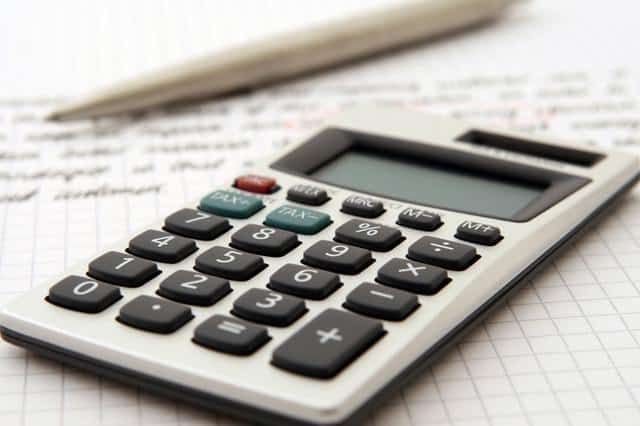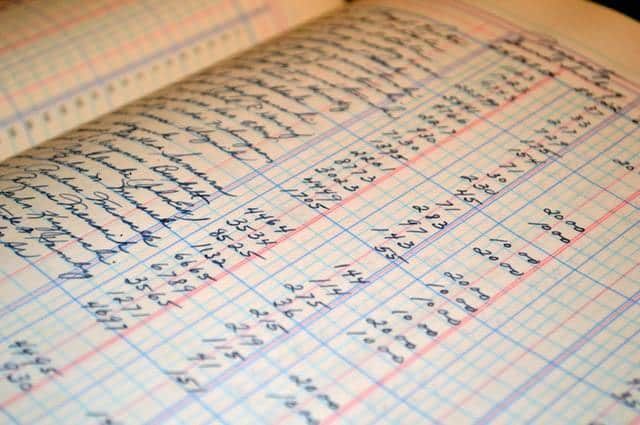10 Bookkeeping Tips For Rental Properties
If you’re a landlord, you may be interested in increasing your knowledge about bookkeeping for a rental property.
Maybe you just became a landlord a few months ago, maybe you have been managing rental properties for quit some time. You’ve been in the rental business for a while, your property is situated in a prime location, and you have responsible tenants who pay their rent on time.
Great!
Things are going as smoothly as can be. But then you look at the financials and realize you aren’t making any profit, or it is less profit that you had anticipated. Then you notice that your expenses are going haywire. They seem to be increasing day by day. You can’t understand what you are doing wrong!
So what’s going on?
Well, this problem may stem from a lack of a good bookkeeping system for your rentals.
Managing a rental property goes beyond making your tenants happy or fixing all the random repairs like leaky ceilings and faucets. You need to manage your books well in order to ensure the success and profitability of your property business.
We have some time-tested bookkeeping tips for a rental property that can help you maintain accurate records and also help you turn your investment into a profit-making machine. These bookkeeping tips for property managers and landlords help to build on top of the basics of property management accounting:
Bookkeeping tips for Landlords

It is important to note that every rental property will have a different bookkeeping process, and this means that it is ultimately up to you to apply the appropriate bookkeeping process to ensure results for your business.
Though we are presenting some of our best bookkeeping tips, it helps to become educated on bookkeeping and accounting processes as much as possible.
Obviously if you are a property manager or landlord, you should ingest all the info available covering bookkeeping and accounting for rental properties. Just don’t stop here. There is a wealth of information to be found in books and online courses on bookkeeping and accounting.
Playing By The Rules
Before you start your bookkeeping, make sure you conduct detailed research to find out about any bookkeeping rules set forth by your local real estate commission, local authorities, or the relevant state agency. If there are bookkeeping rules and regulations, it is advisable to ensure you follow them to the letter.
1. Come Up With an Expense Management Plan
The cost management plan means creating a system that makes expenses visible. How do you do this? You should ensure you record all your expenses. Pretty simple right? Its much easier said than done.
The best way to record all your expenses is through developing the right systems first and then create the habits to actually do it. This way, you will be able to keep track and control of your spending, which will, in turn, lead to reduced spending and more savvy buying decisions.
2. Take Advantage Of Bookkeeping Technologies
There are bookkeeping technologies (& online property management software) designed specifically for rental properties and have templates that will help you plan and organize your books accordingly. Taking advantage of these bookkeeping technologies can go a long way towards ensuring that you avoid the minor mistakes that most landlords make.
3. Keep Paper-Based Records
It’s true that electronic bookkeeping techniques are better because of their accuracy, ease of access, and ease of use. However, this does not mean that you should do away with paper records.
No! You should always keep a hard-copy of all your financial statements, tax returns, general ledgers, and supporting documents for at least seven years. This is good for reference and can also come in handy in case you accidentally delete your electronic records.
You will realize that it is crucial to keep the hard-copy records even if you are unlikely to face any risks by not maintaining them.
4. Ensure Leases and All Other Agreements Are in Writing And Signed
You ought to ensure that all leases are signed and well-kept in your files. Besides, all other agreements that you have made with your renters should also be signed and stored safely.
If you receive rent, other payments, or a correspondence from your renters, you should ensure it is well documented in your accounts.
5. Choose Between Cash and The Accrual Method Of Bookkeeping

For effective bookkeeping, you will have to choose either the cash or the accrual method of accounting. What’s the difference? If you choose cash as your method of accounting, this means that you will be recording transactions when money changes hand.
The benefit of this accounting method is simplicity. On the other hand, if you go for the accrual method, you will be recording transactions as they occur. This means that rent paid for February can still be counted together with March income. The benefit of the accrual method is consistency.
If you ever choose to change your accounting method, it is advisable to make this change at the beginning of a new fiscal year to make the process simple.
6. Run A Separate Checking Account For Rental Properties
You should never mix your business and personal account. To avoid this, create a business account where you will be depositing rent payments after receiving them.
When you want to pay yourself, do so with a check written from the business account. Or maybe you can transfer money from your business account to your personal accounts with a note “owners draw” so you can track things better. Having a separate checking account will help you in the organization of your business finances.
7. Operate A Separate Account For Security Deposits
Remember that your tenants can claim their security deposits at any time. Since you don’t want a situation where you used security deposits to pay for business or personal expenses, the best approach is to create a separate account for keeping all the security deposits and the like.
You should, however, note that if the security deposit account you create bears interest, your renters are entitled to it and can claim it or opt to put it towards the rent. If you already have a security deposit account that bears interests and a tenant claims his/her interest, you are authorized to charge an administrative fee. The administrative fee is generally about 1% of the security deposit in most states.
8. Keep An Itemized Record Of All The Income From The Property
The IRS requires you to fully disclose all the income that you get from your rental property no matter the basis for the collection. It is crucial to ensure you always comply with this rule when bookkeeping.
9. Take Advantage of All Available Deductions

You will not make the profits you want if you don’t take advantage of tax deductions, which is a major reason why you should record all your rental property expenses in the first place. Thankfully, most rental property expenses are deductible and will lower your tax liability.
10. Maintain All Documents Supporting Depreciation and Income Expenses
As an owner of a rental property, you should understand that itemized deductions attract more scrutiny from the IRS. For this reason, you ought to ensure that you keep the receipts for every expense safely in your files. They will come in handy when supporting claims.
Disclaimer: The information is not intended to replace the guidance of a tax attorney. This article is provided for general informational purposes only and should not be construed as legal advice from Prime Property Group, Inc. or the Author of this article. You should seek legal advice from your tax attorney or CPA for more information.





